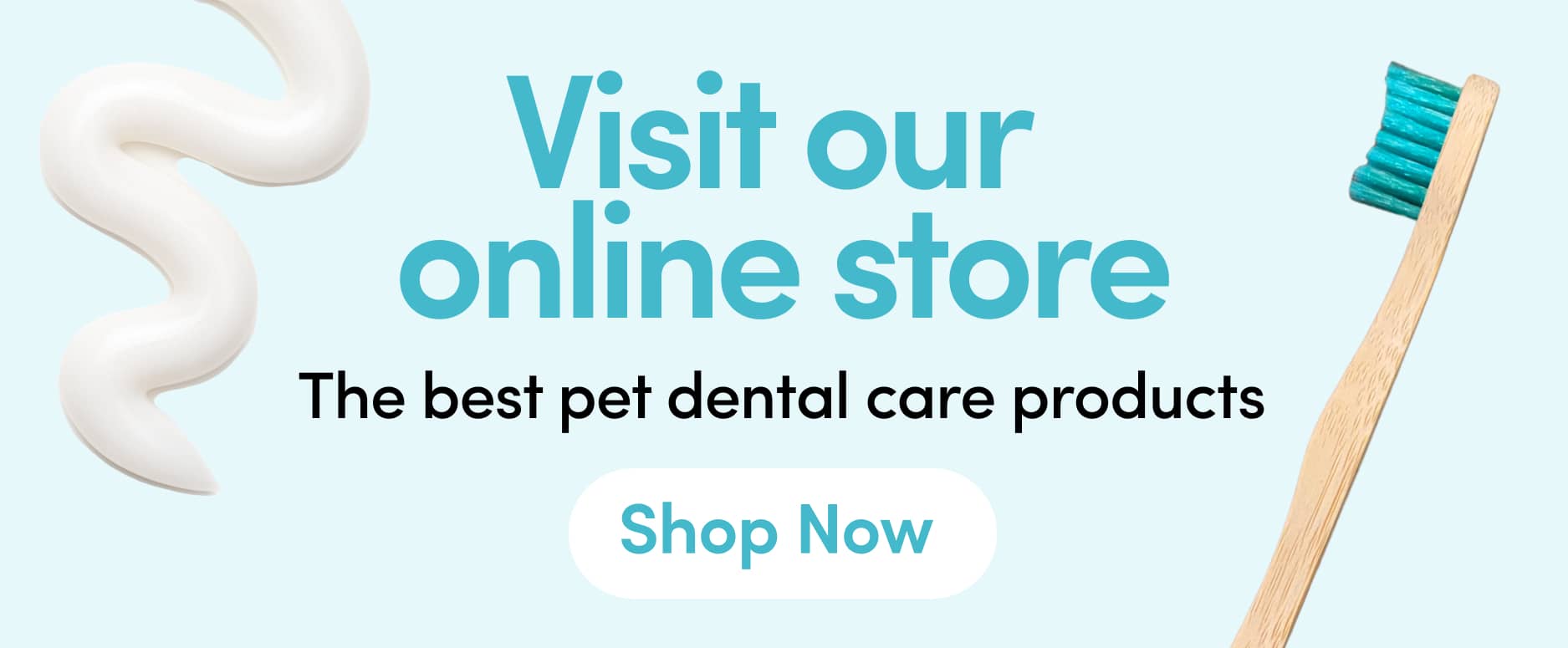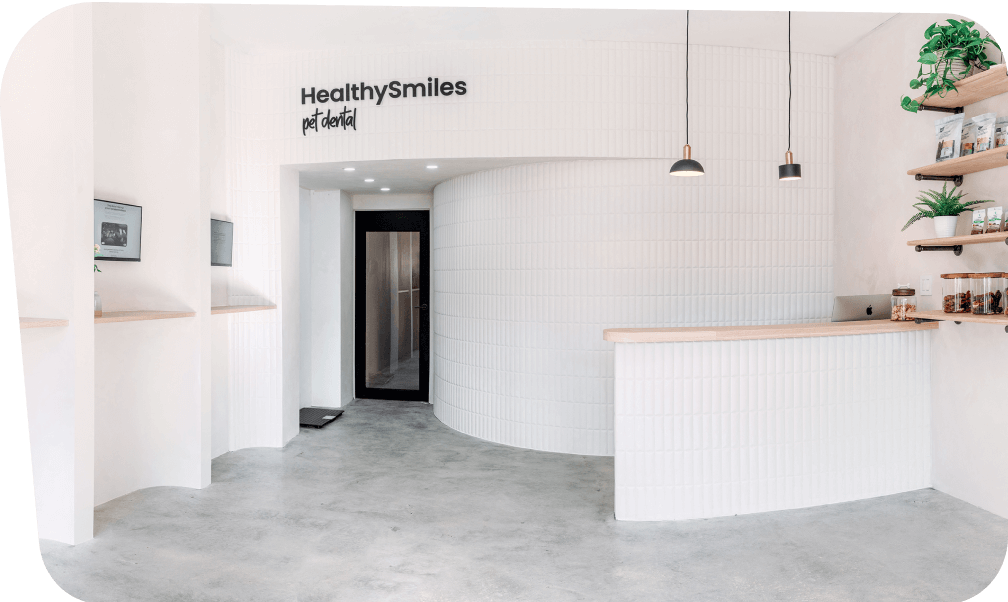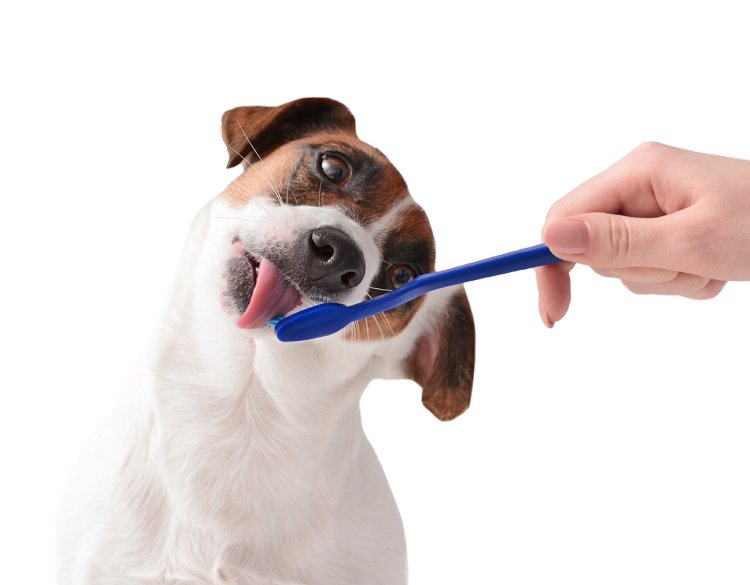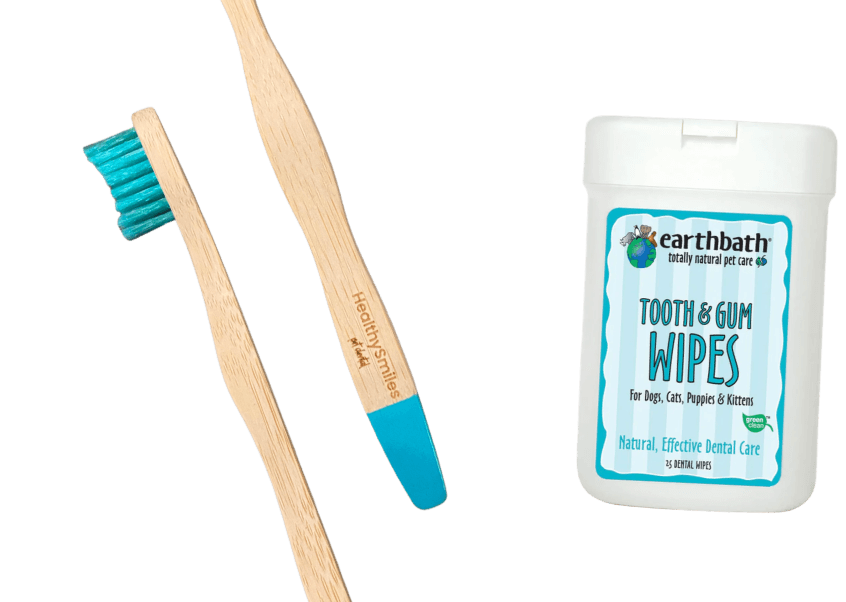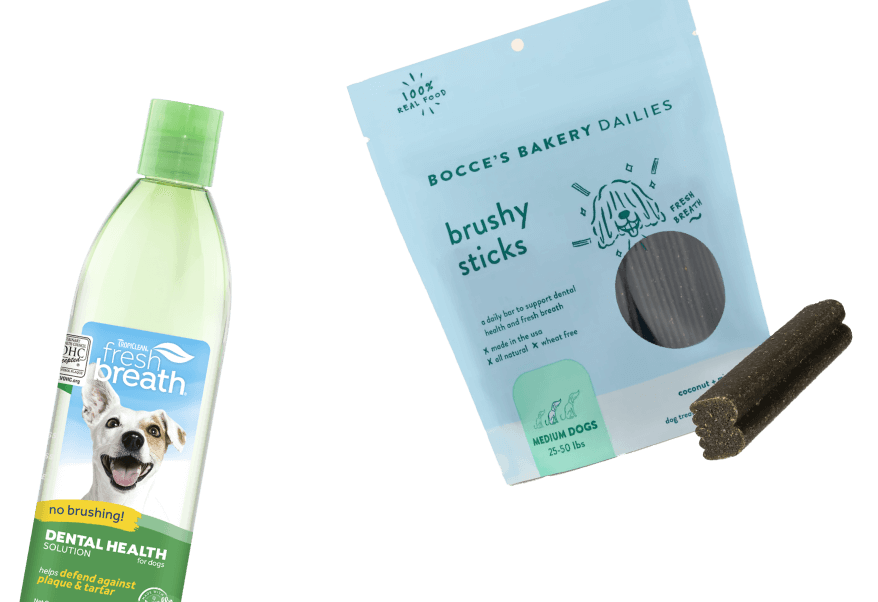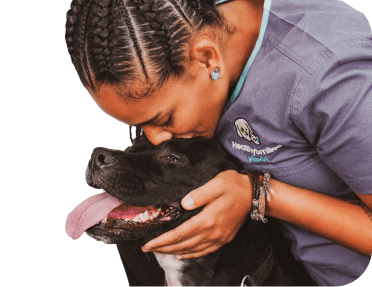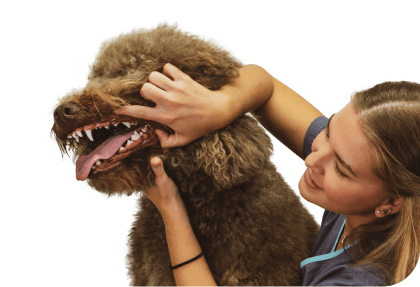Puppy Teeth Cleaning 101
December 10, 2024Congrats on the new, adorable addition to your family! Bringing a puppy home is exciting, but it can also lead to a lot of questions about how to care for your puppy. In this post we’ll cover how to care for your puppy’s teeth and help you establish a puppy teeth cleaning routine at home that will make sure your new best friend will always have a healthy, sparkling smile!
When Should You Clean Your Puppy’s Teeth?
Even though their baby teeth will fall out to make way for adult teeth, you can start gently brushing your puppy’s teeth as early as 6 weeks to get them used to the toothbrush in their mouth. We call this toothbrush training! The more comfortable your puppy becomes with having their teeth cleaned, the easier it will be to maintain a routine of at-home care and professional dental cleanings as they get older.
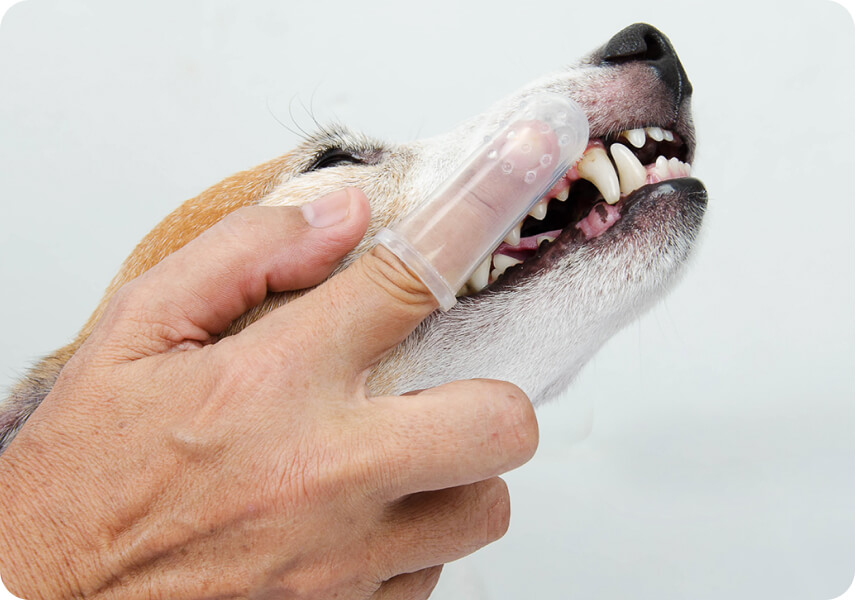
The Best Toothbrushes for Puppies
Look for pet dental kits when shopping for your puppy’s first toothbrush. Many will include a standard brush, a finger brush, and a tube of toothpaste. These kits come with multiple options so you can test them out to see which toothbrush your puppy likes best. We recommend starting with the finger brush as this is a favorite for teething pups. The handle of the standard brush is often seen as a fun chew toy to playful pups, so that design may not be a good choice until they get a little older.
How To Brush Your Puppy’s Teeth
When establishing your puppy’s teeth cleaning routine it is important that you go slow, give your puppy plenty of praise, and finish with a fun reward. Over time you may find that your puppy becomes excited about having their teeth brushed; some dogs will even start fetching their toothbrush for you! The steps below will guide you on how to clean your puppy’s teeth for the first time.
-
- Pick a quiet time in the morning or before bed, or choose a time right before you do something fun, like going for a walk. Sit with your puppy on a soft surface and start with a very gentle, gradual approach.
- Add a dab of peanut butter or flavored dog toothpaste to your finger and let your puppy lick it off. Give your puppy a lot of praise and extra treats as a reward for cooperating.
- When your puppy seems comfortable, apply the toothpaste to a tooth using a finger and give enthusiastic praise followed quickly by going on a walk, taking a ride in the car, or offering a high-value treat or toy. The goal is to have your puppy associate the fun reward with their good behavior while brushing.
- After a few days of this, you can begin to introduce a finger brush or toothbrush. Apply a pea-sized amount of dog toothpaste to the brush and allow your puppy to lick it. Then gently place the brush under their lip and brush one tooth for a second or two. Follow this with high praise and a fun activity or high-value treat similar to the step above.
- Every few days you can increase the number of teeth you brush as your puppy becomes more comfortable with the process and you are able to brush each side of their mouth for about 10-15 seconds.
- Brushing your puppy’s teeth every day is the goal, but even 3-4 times a week will go a long way in making sure their mouth stays healthy and free of bacteria buildup!
Beyond Brushing: More Puppy Teeth Cleaning Tips!
In addition to establishing a regular teeth brushing routine for your puppy, there are a few other things you can do to help care for your puppy’s teeth and whole mouth. Water additives can be added to your dog’s water bowl daily to help prevent bacteria from building up in their mouth.
We compiled a list of our favorite water additives for dogs to help you pick the best option for your pup. Additionally, our list of 6 Home Remedies to Stop Stinky Dog Breath is full of natural ways to help keep your puppy’s teeth clean and their breath fresh so you can enjoy snuggle time and all the kisses that come with it!
When to Schedule Your Puppy For a Professional Teeth Cleaning
Most dogs will have all of their adult teeth by the time they are 6 months old. We recommend bringing your dog in for their first full dental cleaning when they are between 1-2 years old. Smaller breeds, like Yorkies, are more prone to dental disease than larger breeds, so it’s especially important to begin bringing them in for professional dental cleanings by age 2.
At HealthySmiles, we offer toothbrush training & dental checks for puppies and kittens as early as 3 months. If you’re located in South Florida or the Houston area, we highly recommend booking this service at one of our Pet Dental Spas so your new baby can get used to having their teeth cleaned before their adult dental cleaning.
Most dogs are great candidates for non-anesthetic dental cleanings and do not need sedatives for teeth cleaning, especially if their dental care routine is established early.


